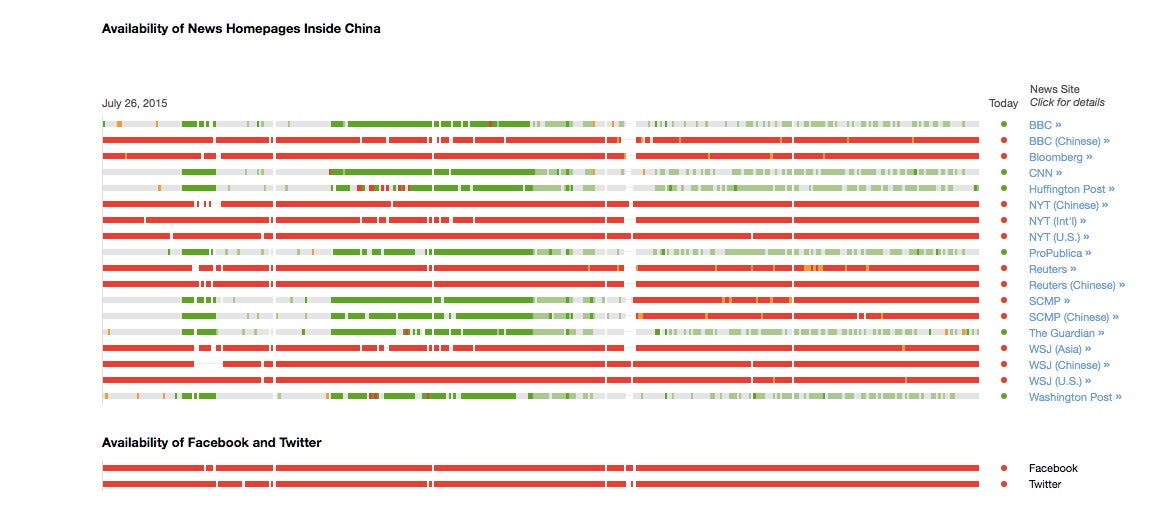Behold: the stunning hypocrisy behind China’s rant about journalists being ousted from India
Three journalists for Xinhua, the Chinese state news agency, are being unofficially kicked out of India after reportedly violating rules pertaining to Tibetan encampments—and China’s government-backed media is apoplectic.


Three journalists for Xinhua, the Chinese state news agency, are being unofficially kicked out of India after reportedly violating rules pertaining to Tibetan encampments—and China’s government-backed media is apoplectic.
“India has a suspicious mind,” The Global Times, a flag-waving state-backed tabloid, claimed on Monday (July 25). India could face “serious consequences” if New Delhi withholds the visas because China refused to allow India into the Nuclear Suppliers Group, it added.
The problem may stem from the fact that India’s leaders might just be getting too confident, the editorial implies. “Indian society in recent years has witnessed soaring nationalism,” the paper added, thanks to “Western public opinion” that India is the world’s biggest democracy.
“India’s action is petty but we won’t fight it back with the same attitude,” another state-sanctioned editorial, which appeared on newsportal 163.com (link in Chinese), claims. However, China “won’t spoil India and let it do what it wants.”
What the indignant editorials fail to mention is that the journalists were reportedly breaking Indian law, and that Beijing itself has a long tradition of booting out and censoring foreign journalists, for breaches that were far less serious.
How Xinhua upset Delhi
The three Xinhua reporters “were doing activities that were not compatible with their journalist status,” an unnamed Indian government source told the AFP. (While they are not being deported from India, their visas are not being renewed, multiple news outlets reported). Specifically, two of the three visited Tibetan encampments in Karnataka without the necessary special permit, and without revealing their identities as foreigners, the Hindustan Times reported. Xinhua has admitted to the “transgression,” the Indian Express reported.
China’s state media interviewing Tibetans in India is a particularly touchy issue, something these journalists would have known.
India has been home to tens of thousands of Tibetans since 1959, after their spiritual leader, the Dalai Lama, fled China. Beijing, however, considers the Dalai Lama and pro-Tibetan activists enemies of the state, and has been trying to stifle both of them outside China, by cutting off celebrities and companies that show support, allegedly backing hacking attacks, and pressuring other governments to silence pro-Tibet voices.
Making matters more serious, reporters for Xinhua actually are sometimes tasked with spying for the Chinese government, the news agency’s former employees say. Among other things, they say they were asked to collect names and photographs of Falun Gong supporters overseas, and collect information from the Dalai Lama’s press conferences.
Pot, meet kettle
When it comes to foreign media in China, Beijing has one of the most repressive policies in the world. Reporters are followed, spied on, and completely forbidden from traveling to certain areas, including Tibet.
Sometimes, they and their sources are threatened and even physically attacked. In October of 2014, one wire services reporter said he was “manhandled, chained to a metal chair and held for more than 14 hours” after trying to conduct interviews in Beijing.
And visas are regularly withheld and revoked for writing things that the Chinese Communist Party does not like.
- For three years from 2009, the Washington Post tried getting a Chinese visa for Andrew Higgins, who had angered Beijing nearly 20 years earlier by writing about Mongolian dissidents. It was never granted.
- In 2012, Al Jazeera’s long-time Beijing correspondent was expelled from China after a series of stories on corruption, victims of the Sichuan earthquake, and other topics.
- Nearly two dozen journalists from The New York Times and Bloomberg News were threatened with expulsion in 2013, after both publications wrote articles on Communist Party leaders’ family wealth. US vice president Joe Biden had to step in.
- Most recently, the correspondent for France’s L’Obs magazine was kicked out of China at the end of 2015, for making the relatively benign observation that Beijing had failed to “acknowledge its own responsibility for the rising exasperation of its minorities” in the Xinjiang region.
Were a foreign journalists to travel without a permit to a restricted region of China, particularly somewhere as sensitive as Tibet, they’d likely face jail time, not just expulsion.
At the same time, Beijing censors foreign media in China so completely that on any given day, most of their reporting is completely inaccessible in China, as an ongoing ProPublica monitor shows:

Xinhua, meanwhile, operates uncensored in India, with its English language website, Twitter feed, and Facebook page freely accessible—even though the news agency publishes maps that show the Indian state of Arunachal Pradesh as part of China (link in Chinese) and reports that the border between the two countries has “not been demarcated.”
Given these circumstances, by merely refusing to renew Xinhua reporters’ visas, the Indian government is being downright generous.